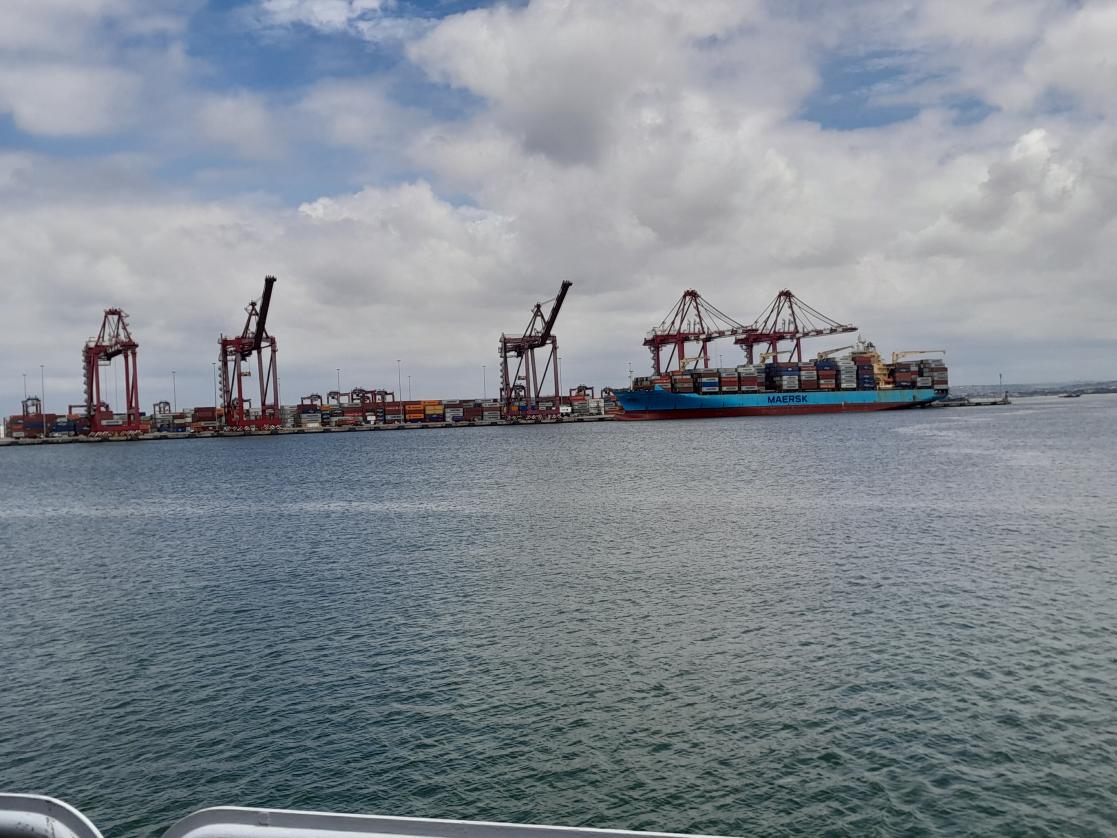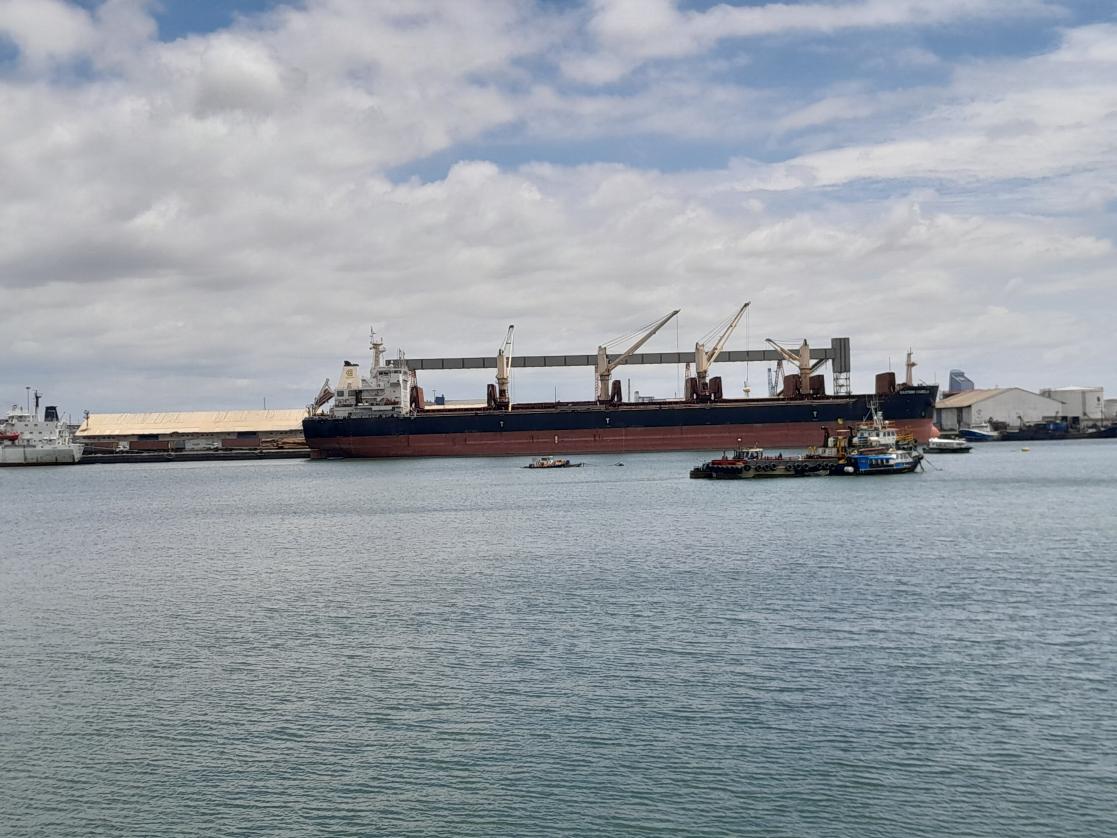RELATIONS WITH THE EU
The European Union and the Republic of the Congo
The relations between the Republic of the Congo and the European Union (EU) are based on four aspects: political, economic, trade and humanitarian.
Political Relations
The relations between the EU and the Republic of the Congo are established within the framework of the Cotonou Agreement, which has the central objective of reducing poverty.
The fight against poverty follows a global development strategy, evaluated using qualitative and quantitative indicators. This integrated strategy combines the political (regional cooperation), economic (development of the private sector, structural and sectoral reforms), social (young people, equal opportunities), cultural and environmental dimensions of the country.
The development programme, set out as part of the agreement, is based on political dialogue, which must address all issues of mutual interest. It mainly concerns:
- The consolidation of peace.
- The prevention and resolution of conflicts.
- Respect for human rights.
- Democratic principles and the rule of law.
- The correct management of public affairs.
Procedures are set up to be applied in the event of human rights violations or corruption.
In Central Africa, other approaches contribute to Peace and Security:
- The Financial Instrument for Stability and Peace.
- Strengthening maritime security.
- GPS marking of land borders.
- The fight against poaching
Political dialogue
In close collaboration with the Member States present in the Republic of Congo, this partnership is implemented to:
- Promote national development and regional integration.
- Maintain positive and fruitful cooperation.
- Ensure prosperity for the maintenance of peace, security, and political and democratic stability
The last political dialogue between the European Union and the Republic of Congo took place on June 7, 2019.
Economic Relations
The Republic of the Congo has numerous natural resources (water, forests, ores), but these are not heavily exploited. The Congolese economy mainly relies on subsistence farming, craft and hydrocarbons. Although the majority of the population lives on subsistence farming, the country's economy also depends on exports, and primarily on petrol.
The economic development programme, as part of the Cotonou Agreement, is based on:
- A new economic and commercial cooperation framework established in order to liberalise trade and integrate the country into the global economy. The strengthening of production capacities and the stimulation of investments are also declared as strategic objectives. Commercial cooperation mainly concerns services, competition, intellectual property, standardisation and certification, sanitary standards, the environment, working standards, consumer policy and public health.
- A financial cooperation reform to ensure, in particular, the coherence, effectiveness, flexibility and ongoing adaptation of assistance for the country's situation. Concretely, the country has a basic envelope prepared jointly by the EU and the Congolese government. There is a second envelope to cover unexpected needs.
Trade Relations
The Republic of the Congo is a very open country in trade terms, with a cumulative export and import value higher than its GDP.
The country's trade balance is structurally in surplus (a positive balance of CFA 1 678.9 billion in 2008). The trade surplus mainly comes from the oil sector (over 90 % of exports), which thus provides a very comfortable import cover ratio. However, this lack of diversification shows that the economy depends heavily on the oil sector.
The Republic of the Congo mainly exports to Asia, and in 2007, Europe represented just 8 % of exports. However, the EU is the leading supplier of import goods (54 % of imports in 2007).
As part of the cooperation policy, the EU implements projects that favour the diversification and improvement of the competitiveness of Congolese products, particularly:
- The ‘Sucre’ project (support for the national adaptation strategy for the sugar sector), which should allow the sugar sector to make the necessary investments and reforms to adapt to the new context of the sugar market in Europe;
- The ‘Strengthening commercial and entrepreneurial capacities’ project, which also aims to make the Congolese economy more competitive;
- The ‘Diversification of the economy’ component, which should help the country acquire a business diversification strategy and improve the environment for the private sector.
Areas of Intervention of the European Union in the Congo
Local development
- Development of agricultural, fish and livestock sectors.
- Access to drinking water for rural populations.
- Improved management and living conditions in secondary towns.
- Infrastructures.
- Rehabilitation of transport infrastructure to improve trade and competitiveness (construction of the RN1, rehabilitation of the Port of Brazzaville).
Economy and trade
- Development of entrepreneurship, development of the formal sector, support for VSEs and SMEs. Job creation through diversification of the economy and commercial activities.
- Integrated regional market and accompanying measures for the EPA.
Governance & justice
- Promotion and defense of human rights.
- Protection of the most vulnerable people and promotion of a participatory and representative democracy.
Social & health
- Training and integration of young people in vulnerable situations.
- Access to quality health services at affordable prices.
Environment
- Forest governance for sustainable management of forest ecosystems.
- Preservation of biodiversity, fight against poaching and development of ecotourism.
Dialogue with Civil Society
Civil Society Organisations (CSOs) play a key role in the identification of priority actions. Their role is also important in promoting and monitoring the application of decisions. Through its Delegation to the Republic of the Congo, the EU thus encourages a wide variety of players committed to the promotion and evaluation of action plans, and supports dialogue between the CSOs and the Congolese government to encourage the necessary reform procedures.
With this aim in mind, the EU Delegation to the Republic of the Congo regularly meets organisations which work to strengthen the capacities of the media and journalists, or of civil society associations working in the domains of human rights, professional training for the disadvantaged, health, etc.
The Delegation is attempting to intensify its dialogue with these structures in order to collect opinions and suggestions to improve its cooperation with the Congolese government.
Flagship Actions
- Local development: resilient cities.
- To improve the attractiveness and living conditions in the towns of Owando and Nkayi.
- To support local authorities to ensure the skills transferred to them and to adopt an approach of accountability to residents.
Sanitation was chosen as a concrete area of application for capacity building for local authorities.
21 billion FCFA in donations from the European Union
Infrastructures
Autonomous Port of Pointe-Noire (PAPN):
- Extension of the fishing port (construction of quays).
- Support to PAPN in improving port and environmental management procedures and to the Ministry of Fisheries in fishing control and the construction of a new industrial fishing port and a shelter for artisanal fishing.
CFAF 86 billion project
Autonomous Port of Brazzaville
- Revival of the economic activity of the Port thanks to the installation of new cranes.
CFAF 6.5 billion project
Economic diversification
Support entrepreneurs throughout the life of a business, diversify the economy and create sustainable jobs, by:
- Supporting small and medium-sized businesses.
- Supporting the various mechanisms of training, information and resolution of commercial disputes.
CFAF 8.1 billion project
Environment / biodiversity
The Support Program for the Preservation of Biodiversity and Fragile Ecosystems (ECOFAC 6) benefits 7 countries in the Central Africa region. It aims for the sustainable management of protected areas and their peripheral areas.
In the Republic of Congo, ECOFAC 6 provides for 3 supports:
- EU contribution of 4 billion FCFA for Odzala-Kokoua National Park (APN, Nature +, OdzalaKokoua Foundation).
- EU contribution of 656 million FCFA for the future Protected Area of Messok Dja (WWF & ACFAP).
- EU contribution of more than CFAF 1.2 billion for the Nouabalé-Ndoki National Park (WCS, Nouabalé-Ndoki Foundation).
Global Gateway

European Union, 2024
Global Gateway is the EU's positive offer of cooperation to our partner countries to support their own strategic autonomy, align the interests of partner countries and the EU, increasing high-quality geostrategic investments and promoting sustainable financing . Covering five main themes (digital, climate and energy, transport, health and education and research), it is implemented according to the “Team Europe” approach.
Learn more about the Global Gateway strategy
The “Global Gateway” strategy is implemented through projects in Latin America and the Caribbean, the Middle East, Asia and the Pacific, as well as sub-Saharan Africa.
« Global Gateway » at Republic of Congo
In the Republic of Congo, the EU is working on a flagship project as part of the Global Gateway: Transport.

European Union, 2024
The Team Europe initiative “Program for the extension and environmental upgrading of the infrastructures of the Autonomous Port of Pointe Noire”, amounting to 132.98 million euros, includes actions from the EU and of France through its development agency, AFD. It aims to contribute to the reduction of poverty and the improvement of the living conditions of the populations of the Republic of Congo through an improvement of the economic and commercial environment, sustainable access to efficient port infrastructures and management of the sustainable and sustainable fishing resource. It includes actions that will allow the Autonomous Port of Pointe Noire (PAPN) to respond to the growth in traffic at the port of Pointe-Noire by improving its reception infrastructures and its competitiveness, and to provide the Congo with efficient industrial and artisanal fishing infrastructures and to support the implementation of sustainable management of the country's fishery resources, the basis of food for the populations of Congo.

European Union, 2024
The EU encourages all of this by guaranteeing environmental management of the PAPN in accordance with international standards.
This initiative finances, among other things, the construction of a 250 m multi-purpose quay, the beginning of a 100-metre multi-function quay, a dock intended for ship repair, and a new industrial fishing port and 'a new support structure for artisanal fishing, in line with the PAPN master plan, which recommended the relocation of the fishing port outside the commercial port area in order to limit the risks linked to current cohabitation with conventional activities. The deployment of these new infrastructures will also be accompanied by measures allowing Congo to return to a sustainable mode of exploitation of fishery resources and thus guarantee the country's food security. Thanks to this initiative from Team Europe, the Republic of Congo can benefit from the growing importance of the autonomous port of Pointe-Noire for its hinterland and for the sub-region.

European Union, 2024
